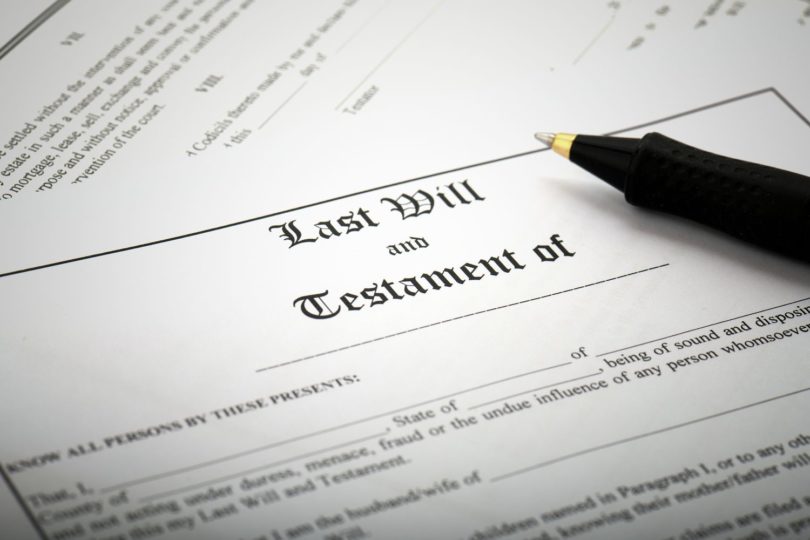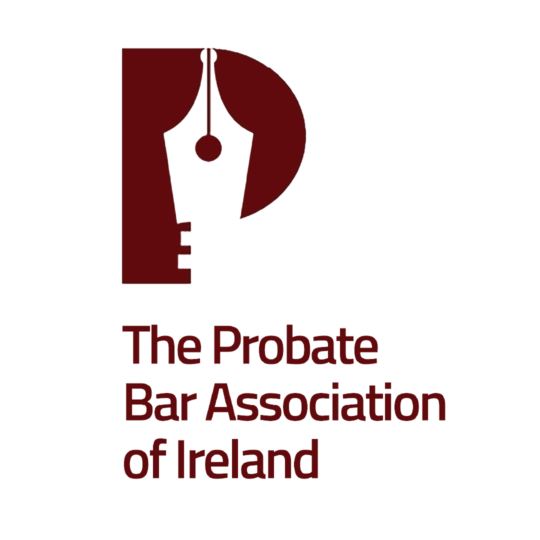
The issue of wills, property and passing of one’s estate has, through the ages, provided rich material for playwrights, poets and authors. It is also the work of the courts and counsel.
Catherine Duggan BL examines the key issues relevant to one of the most contested areas of estate planning; namely the claim that there has been a failure to make ‘proper provision’.
This article is based on a series of presentations, in conjunction with the Office of Parliamentary Legal Advisers (OPLA), delivered to Members of the Oireachtas and Parliamentary staff, in April 2023.
The Testator’s Armchair
Section 117 of the Succession Act, 1965 provides for a child’s right to bring a claim against a parent’s estate that ‘proper provision’ has not been made for him or her. In this writer’s experience, the most frequent cases taken are, where one child has benefited in a parent’s will to the exclusion of the other children, or where only one child has been excluded. The discretionary remedy provided by S117 allows the Judge to sit in ‘the testator’s armchair’ and do what the testator might have, or should have done, or leave the will unchanged.
At the time the Succession Bill was being proposed, the issue of whether there should be fixed succession rights for children was vigorously debated. It was acknowledged that at the time there was a problem of disinheritance in the country (Dáil Debates, 25 May 1965).
Ultimately, it was considered that the interests of children could best be safeguarded by the introduction of a system of application to court, under which, the court would determine what constitutes ‘proper provision’ in any case.

Section 117(1) of the Succession Act, 1965 provides:
“Where, on application by or on behalf of a child of a testator, the court is of the opinion that the testator has failed in his moral duty to make proper provision for the child in accordance with his means, whether by his will or otherwise, the court may order that such provision shall be made for the child out of the estate as the court thinks just.”
Thus, by virtue of S117(1) there is a moral duty on a testator to make proper provision for children. The moral duty can be discharged during the testator’s lifetime and there may be no obligation on a testator to leave a child anything in his or her will.
The spouse’s right to elect to take the legal right share was also introduced in the Succession Act and an Order under the s117 cannot affect the legal right share of the spouse or of the surviving civil partner.

A lacunae – the intestate estate
Section 117 does not apply to intestate estates.
It is considered that section 177 should be extended to intestate estates. If the intestate dies with spouse and no issue, the spouse is entitled to the entire estate . If the intestate dies with spouse and issue, the spouse takes two thirds and the remainder is to be distributed among the issue.
A situation could arise where a person in a second relationship in an effort to ensure the bulk of the estate is left to ’the second family’ makes a conscious decision to die intestate, with the result that his spouse takes two thirds and all of the issue divide the remainder.
It might be that little or no lifetime provision was made for the child or children of the first relationship but those children have no recourse to section 117 to remedy that failure to provide. This view is supported by Probate Bar Association, a specialist bar association supported by the Bar of Ireland. Indeed, it has been an issue raised by the Law Reform Commission, back as far as 2016
Proper Provision
It is of particular note, that the first reported S117 case highlighted two ‘social evils’ that the Succession Act was introduced to deal with, that of disinheriting spouses and children. In that case the testator had left his property upon trust for his wife for life, and thereafter to his two nephews, with no provision for his son who was adopted. The Court found the testator had failed in his moral duty to provide for his child and awarded him one half of the testator’s estate after provision was made for the wife’s legal right share.
The concept of ‘proper provision’ is a variable standard and it does not involve giving a fixed or equal share to each child. Indeed, a prudent and just parent may treat his children differently, according to their needs and circumstances.

Events, dear boy, events
“Events, dear boy, events” The famous quote by Prime Minister Harold Macmillan could explain why then, it might be fair to treat children differently.
In a 2015 case, 2015 property values for development land had fallen sharply and an equal share in the testator’s estate worth €14 million was insufficient provision for the testator’s son, to whom the testator had sold land for €1.2M and the son still owed €1.6M on a bank loan.
The land was worth €160,000 because of the economic crash. The court decided the son’s bank loan should be paid by the estate and he should be given an additional €500,000 and the estate then divided equally between the other five children. Mr Justice Michael White stated
“The moral duty is judged on objective standards in the light of the situation prevailing at the time of the testator’s death.”
Keane J’s quote in the Supreme Court case EB v SS [1998] 4 IR 527 explains the challenges for the testator:
“It is obvious that it is not necessarily an answer to an application under section 117 that the testator has simply treated all his or her children equally. The maxim “equality is equity” can have no application where the testator has, by dividing his estate in that manner, disregarded the special needs (arising for example from physical or mental disability) of one of his children…… At the same time, the proper and understandable anxiety of parents to avoid any friction among their children by effecting as far as possible an equal distribution of their property among them must be recognised.”
The claimant must be able to demonstrate a need for provision. Some may consider it unfair that a child who without parental financial support has done well in life through his own labours and cannot demonstrate need is not a candidate for a S117 claim. While the child who has not made the same efforts to prosper in life and accordingly can show financial need, may be a candidate for a S117 claim.
Discharging moral duty
The court can also take the view that notwithstanding a clear financial need, that the parent’s moral duty was discharged by making ample lifetime provision.
In EB v SS, Keane J refused to make provision for a child who was in his forties, had received generous provision during his mother’s lifetime, was married, had not worked since university and at the time of his mother’s death was a drug addict and alcoholic. His mother left her estate to charity and when advised by her solicitor ‘charity begins at home’, she described her son as “ne’er do well’ and ‘an eternal student’ and she would not ‘throw good money after bad’.
Keane J made it clear in this case that there is no upper age limit for claimants stating:
“The legislature, no doubt for good reasons, declined to impose any age ceilings which would preclude middle aged, or even elderly offspring from obtaining relief.”
Age no barrier
Twenty five years later, the High Court in G.S. v M.B [[2022] IEHC 65] made provision for the 65 year old applicant who was born in a mother and baby home and grew up in the care of his foster parents. In that case, Ms Justice Stack stated: “There is no impediment to a middle aged or even elderly child from obtaining relief under the section”. The plaintiff’s assets in that case were a little less than the value of the estate but the circumstances pointed to a clear failure in moral duty to provide for him.
Adopted children can bring section 117 proceedings against the estates of their adoptive parents but not their natural parents. Neither step children nor foster children can apply under S117. Again, these are areas that may merit further analysis and discussion.
Key points in respect of S.117
- An application must be made within six months from the first taking out of representation of the deceased’s estate. There is no provision for an extension of time.
- Costs are at the discretion of the Court.
- All section 117 cases are heard in camera and the judgments are redacted.
- The High Court and the Circuit Court have jurisdiction to hear section 117 cases, the latter once the value of property is not greater than €3 million.
The views expressed above are the author’s own and do not reflect the views of The Bar of Ireland.
Discover our Specialist Bars

The Probate Bar Association (PBA) is a specialist association of Irish lawyers who practise in probate and succession law.
Members of the PBA specialise and practice in chancery probate, succession law and trust litigation, and have extensive litigation experience in these areas, advising and supporting solicitors acting on behalf of executors, beneficiaries and any other interested parties.